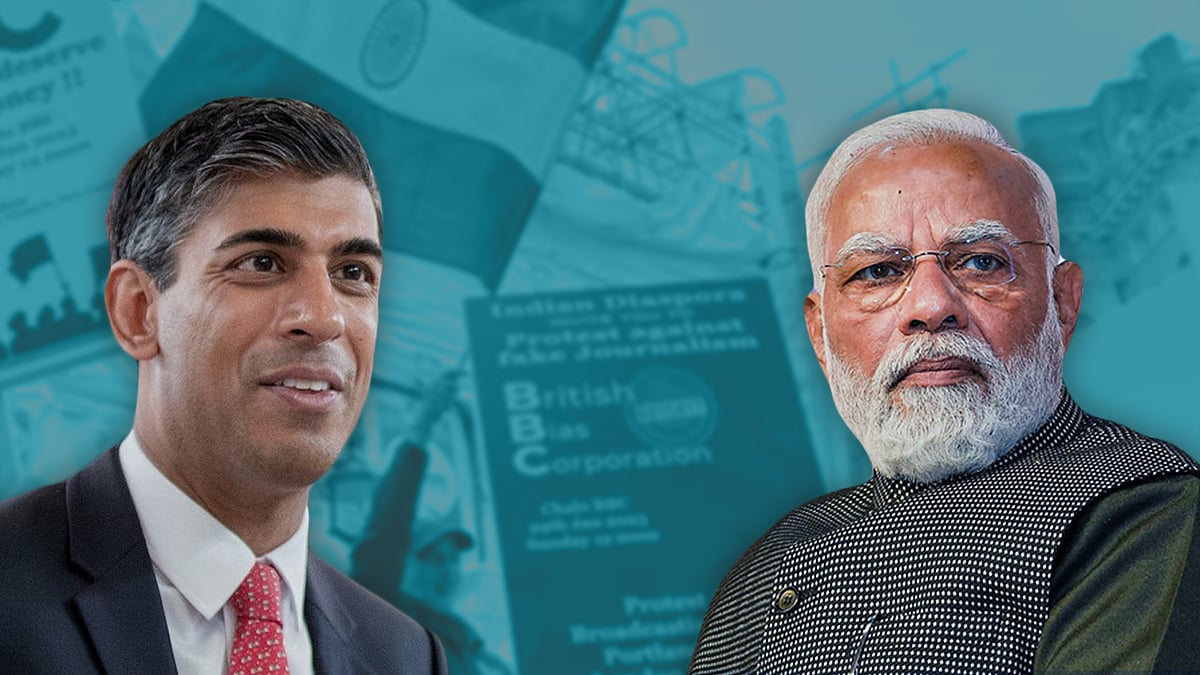‘Mischievous’: I&B minister slams NYT opinion on ‘final assault on India’s press freedom’
The remarks come two days after the opinion piece by the executive editor of Kashmir Times.
Two days after an opinion piece in the New York Times said press freedom in “the rest of India may end up looking a lot like Kashmir”, union minister Anurag Thakur on Friday called the article “mischievous”. “New York Times had long back dropped all pretensions of neutrality while publishing anything about India,” the minister said.
“New York Times had long back dropped all pretensions of neutrality while publishing anything about India. NYT's so-called opinion piece on freedom of the press in Kashmir is mischievous & fictitious published w/ a sole motive to spread propaganda about India and its democratic institutions and values. This is in continuation with what NYT and a few other link-minded foreign media have been spreading lies about India and our democratically elected Prime Minister Shri Narendra Modiji. Such lies can't last long,” Thakur said in tweets.
Criticising foreign media for peddling lies about “our democracy and pleuritic society”, Thakur said, "Democracy in India and we the people are very mature and we don't need to learn the grammar of democracy from such agenda-driven media. Blatant lies spread by NYT abt press freedom in Kashmir are condemnable. Indians will not allow such mindsets to run their decisive agenda on India soil."
Headlined “Modi’s final assault on India’s press freedom has just begun”, the opinion piece was written by Anuradha Bhasin, the executive editor of The Kashmir Times.
“On the evening of Oct. 19, 2020, as reporters and photographers for The Kashmir Times rushed to meet deadlines, government officials and the police swept into the newspaper’s offices in the city of Srinagar, chased out the staff and put a lock on the door that remains to this day.
“To me, the raid was punishment for daring to question the policies of Prime Minister Narendra Modi of India. The newspaper, for which I am the executive editor, has been an independent voice in the state of Jammu and Kashmir since it was founded by my father in 1954, weathering several tumultuous decades of war and military occupation. But it may not survive Mr. Modi. His repressive media policies are destroying Kashmiri journalism, intimidating media outlets into serving as government mouthpieces and creating an information vacuum in our region of about 13 million people,” Bhasin wrote.
“Now Mr. Modi is taking steps that could replicate this disturbing model on a national scale. His Hindu-chauvinist movement, which has normalized intolerance and violence against Indian Muslims, has already put severe pressure on India’s once-rambunctious press, with journalists surveilled and jailed, and the government using strong-arm tactics against media outlets to ensure favorable coverage. But in January, draft amendments to digital media guidelines were introduced that would essentially allow the government to block any content it doesn’t like. In other words, the rest of India may end up looking a lot like Kashmir.”
In India, every second foreign correspondent has been summoned by the Narendra Modi government to explain their reportage critical of ministries. Since August 2019, almost no one has been allowed to visit Jammu and Kashmir and report independently there. And journalists who write “negative stories” are given visas valid for less than a year, putting their jobs at stake.
These are some of the findings of three internal surveys conducted in 2020, 2021 and 2022 among journalists in India who are either foreign nationals or who are overseas citizens of India cardholders. You can read more details in this Newslaundry report.
 Did Rishi Sunak stand by Modi in BBC documentary row?
Did Rishi Sunak stand by Modi in BBC documentary row?NL Digest
A weekly guide to the best of our stories from our editors and reporters. Note: Skip if you're a subscriber. All subscribers get a weekly, subscriber-only newsletter by default.
